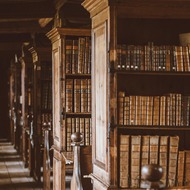
(View Complete Item Description)
The Thanksgiving unit is divided into three separate lessons, Thanksgiving 1Pilgrims and American Indians, Thanksgiving 2The Pilgrim Story and My Immigrant Story, and Thanksgiving 3Traditions. In planning this first lesson, consider whether you wish to cover this material in one or two class sessions. It introduces the Pilgrims arrival and first year in North America as well as the life of the American Indians who helped them. On the handouts, you will find Reading Paragraphs and Word Banks with visuals to help illustrate the teaching points and to engage the students in discussion. There is new vocabulary that your students will not need to know for the Civics Test. For example, the readings cover historical background to the Thanksgiving story but these details are not on the test. The story of the Pilgrims experience presented here will be explored further in, Thanksgiving 2The Pilgrim Story and My Immigrant Story, when the students have an opportunity to share their own stories. Covers civics test items 58, 59, 64, 96, and 100.
Material Type:
Lesson Plan


















